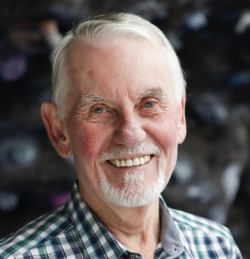The Complexity and Management Conference 4-6th June 2021 – The Complexity of Practice, is open for booking now. Here is the booking page.
This year we are delighted to have Professor Hari Tsoukas, who is well known to many of you, as our key note speaker. Hari is Columbia Ship Management Professor of Strategic Management at the University of Cyprus and Distinguished Research Environment Professor of Organization Studies at Warwick Business School. He is best known for his contributions to understanding organizations as knowledge and learning systems, for re-viewing organizational phenomena through the lens of process philosophy, for exploring practical reason in organizational contexts as well as the epistemology of reflective practice in management, and for bringing insights from Aristotelian, Wittgensteinian and Heideggerian philosophy to organization and management studies.
The staging of this year’s conference is no less an uncertain undertaking than last year’s. So we are organising for a face to face event, but at the same time preparing to go online. This means that the booking page requires you to make two payments. The first is a deposit (£100), and the second (£700) is to top up the payment to the full conference fee amount (£800). Should the face to face event be cancelled and we move online, we will refund you the top-up amount (£700) and keep the deposit as payment for the online event. This is the way the university best copes with refunds and it will save you going through the whole process again.
The event will, as usual, be highly participative and deliberative. If face to face, the conference begins on the evening of Friday 4th June with complementary drinks and gala dinner, and ends after lunch on Sunday 6th June. The conference fee covers all board and lodging for the event at Roffey Park Institute, Horsham UK. If we move online the conference will be just Saturday 5th June from 9am till 5.30pm.
There are limited places, so book early to avoid disappointment. I will send out an agenda early May once it is clear what kind of event we will be staging.
Whether face to face or online, the afternoon of Saturday 5th will comprise seminars presented by conference delegates emerging from some aspect of their work related to the conference theme on which they would like to convene a discussion. If you would like to convene such a seminar, please contact me.
On Friday 4th June, whether face to face or online, there is an introductory workshop to the ideas which inform the Doctor of Management (DMan) programme, a perspective we term complex responsive processes of relating. The workshop too will be very participative and discussive, drawing on delegates’ every day experience at work.
Looking forward to seeing you there, one way or another.



